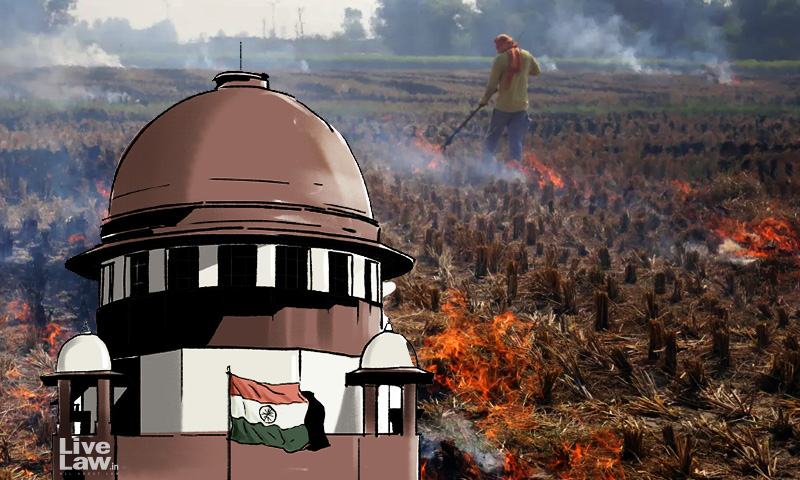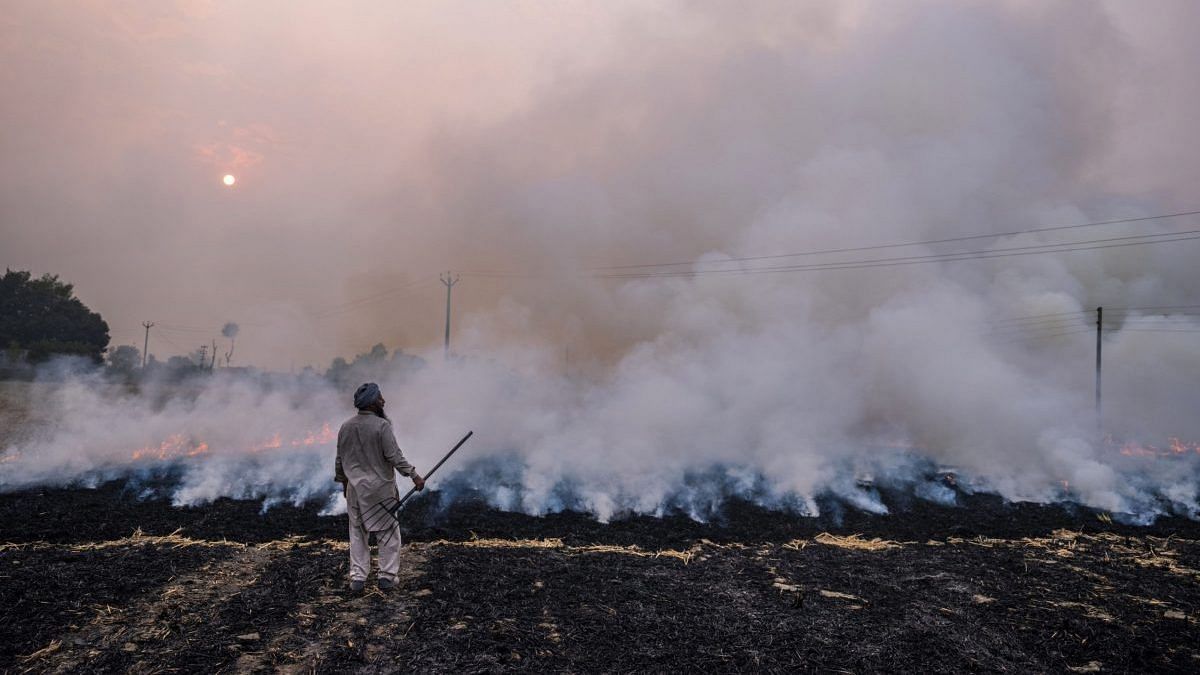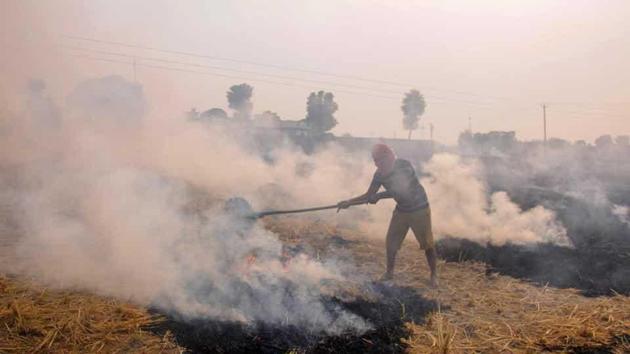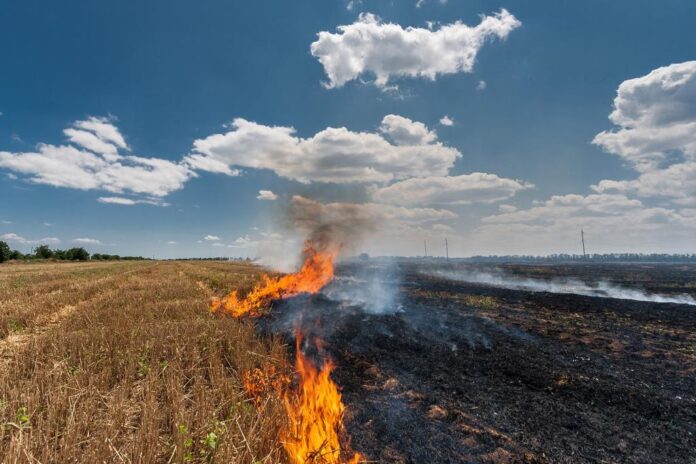Hazardous AQI in New Delhi; No room is safe, says Supreme Court.
Amidst the rising concerns of the level of pollution in the national capital of New Delhi, there has come to be various initiatives to bring it under control. After the Air Quality Index [AQI] reached to a level beyond which it could not be captured in measurements, the situation had reached to a point where the Delhi Government declared Public Health Emergency, ordering schools to remain closed till November 05, 2019.
While the Delhi Chief Minister [CM], Arvind Kejriwal announced a fifteen-day return of the odd-even scheme and a complete ban on all construction as well as demolition activities in the Delhi NCR. The defaulters are to fine to the cost of Rs. 1 lakh.
Even, the Supreme Court has taken cognizance of the said matter. The Supreme Court observed that the level of PM2.5 in the air is around 500-600, and thus ‘no room is safe’ in Delhi despite the technology to purify the air. Recently, the Supreme Court, after taking cognizance of the matter, passed a number of directions in the matter, addressing the pollution in the context of the stubble burning.
Stubble burning in the neighbouring northern states of Punjab, Haryana and Western Uttar Pradesh, (as well as other regions of North India) has been identified as the major reason for the smoke flying and settling in the atmosphere above the already polluted National Capital Region [NCR] of New Delhi.
Provide financial assistance to small and marginal farmers: SC to Punjab and Haryana Government.
Among the many directions passed by the Supreme Court, it also ordered the governments of the state of Punjab, Haryana, Uttar Pradesh and New Delhi to not go for the burning of the stubble, to process the same and bear costs incurred. In an attempt to not compromise the interests of the small marginal farmers, the states of Uttar Pradesh, Punjab as well as Haryana have been directed in unequivocal terms to provide financial assistance to each marginal farmer involved in the production of the non-basmati variety of rice (non-basmati paddy), up to Rs.100/- per quintal.
This amount is said to be provided as a help to deal with the stubble, without burning it within a period of seven days. This is to prevent any future burning of the stubble, causing a further spike of pollution level in the atmosphere.
The directions of the Supreme Court have got cooperation from the chief secretaries of the three States. These states have assured that there shall soon be the dedication of some machinery for the use of these small and marginal farmers, to deal with the stubble burning. The focus has been kept on the small and marginal farmers because it is usually this class of the farmers who involve in the burning of the stubble.
The burning of the stubble is the only alternative in the absence of any alternative machinery present with the states. The machinery which can be treated as an alternative is provided by the cooperative societies, which is sold at a very high price unaffordable to the small and marginal farmers. Therefore, after the present order of the Supreme Court, the cost of the machinery will be borne by the states unless there is a policy framework prepared in this regard.

“operational expenses shall of the machines be borne by the State Governments for the time being until a methodology/policy is devised and adopted to provide proper facilities of machines to small and marginal farmers in each of these states,” the Court said.
Policy Framework required to address the issue of Stubble Burning.
The Court has acknowledged the dire need for a comprehensive framework which should be prepared within the given timeline of three months. This policy framework is seen to be working in the interests of the small as well as marginal farmers and shall be implemented across the country to bring down the hazardous practice of stubble burning. The Court has observed that the small and marginal farmers are not in a position to afford the machines, which are very costly.
It said that these farmers need to be supported as the stubble burning takes place only by way of compulsion, given the short duration of time between two crops. As reported by Bar and Bench, the Court before the passing of the order also confronted the chief secretaries of the States for inaction and inability of the government to address the situation, which has worsened the situation.
This situation caused due to stubble burning is not peculiar to this year and has been brought to the notice of the states even before. The apex court asked the States that despite knowledge of the havoc it can cause, why were the government not ready in advance, providing the farmers with the required to dispose of the stubble.
We have forgotten the concept of a welfare state, says Justice Mishra
Justice Mishra observed that the state governments have no efforts in the past year, asking them the measures taken for prevention. In response, the chief secretaries of both Punjab and Haryana told that they had carried out programmes to ‘educate, sensitize and motivate the farmers to use the machines for stubble process, instead of opting for burning the same’. However, Justice Mishra, who presided over the matter, along with Justice Deepak Gupta, was dissatisfied by the results of the efforts.

He confronted the states regarding the lack of a policy mechanism in place to address the issue. He said that the onus of the disaster caused is not solely of the poor farmers as they can do only what is in their capacity, given the financial crisis and the limited time to deal with the stubble and prepare the farms for another crop. Justice Mishra said to the administration heads of Punjab and Haryana.”
“We have forgotten the concept of a welfare State. We are unable to provide the farmers with modern facilities required to deal with the problem of stubble burning. You cannot penalize the farmers without providing them amenities to address the issue. There will be a law and order problem if that is done. You are not providing them with the basic facilities, and then you want to punish the farmers for the same. You cannot sit in your ivory tower and try to rule people like this,”
Bar and Bench reported that Justice Mishra, on various counts during the hearing, regretted over holding the administration responsible under the Law of Torts and said that it is time to make efforts to haul up the officials and fastening responsibility on them rather than penalizing the poor farmers.
Supreme Court says NO to phase-wise stubble burning, directs absolute ban.
Attorney General of India, Mr K.K. Venugopal suggested a remedy that stubble burning be carried out in Punjab and Haryana’ zone-wise’, where each of the zones of the State is allowed to go ahead with burning the stubble on certain specified days as allotted to them in the plan. This plan was put forth to reduce the smoke and pollution level rising in the Court.

However, this was rejected by the Court, saying that this practice should not be allowed at all and rather the approach should be to purchase the stubble from the farmers and dispose of it off using the machinery available. He said that stubble burning is preferred by farmers because it in volves no costs and is an economical choice to make for them.
The matter has been now posted on November 15, 2019, for hearing. The States have been given a time of seven days to ensure compliance with the directions of the apex court and hiring the required machine for stubble burning. There were mentions of the prevailing situation directly affecting the right to life, which is the most precious right one cannot afford to lose.
“The right to life is the most important. We can’t live like this, cannot survive in this atmosphere. We are losing precious years of our life.”

